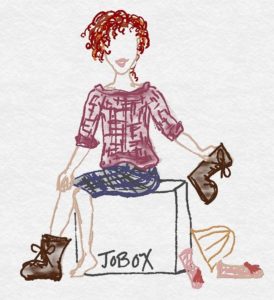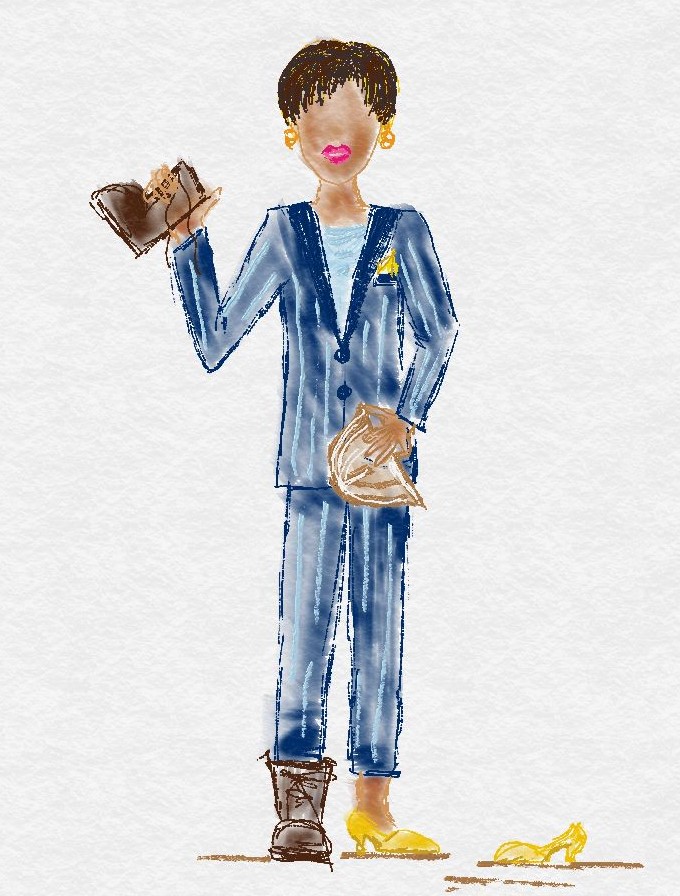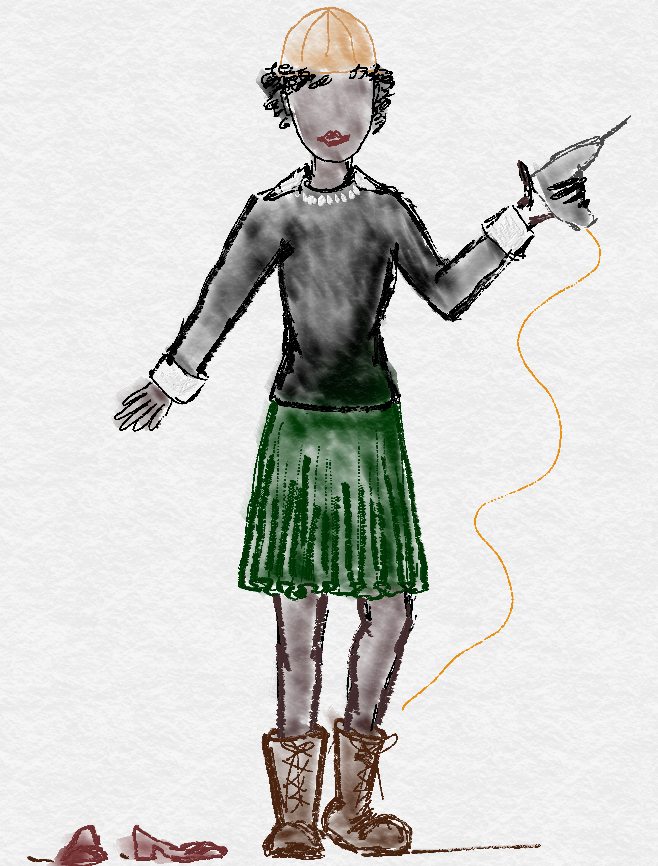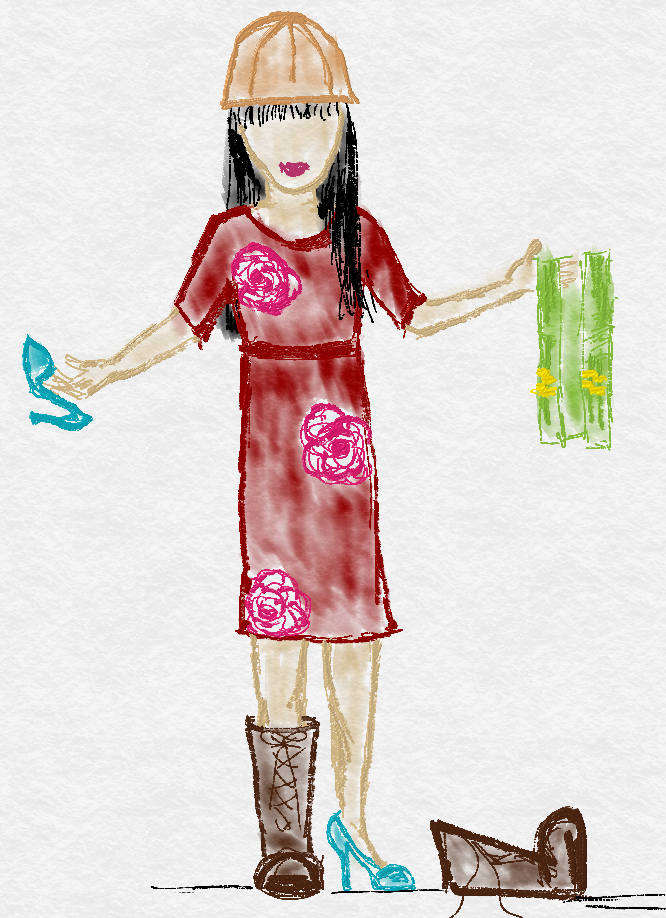women’s equality
Are You a Feminist?
What Does That Even Mean?
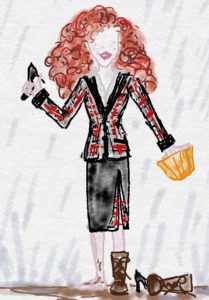
Are you a feminist? What exactly does that mean? And is it important to you to identify yourself as such?
Megyn Kelly, former Fox News host and current NBC news personality, was widely derided in 2016 by her refusal to label herself as a feminist. She stated that the term had become divisive and had negative connotations. Many women took that position as a cop out and an avoidance of the true issue: that being branded a feminist would alienate many of the average Fox viewers. They said that she needed to stand up for women as a whole, even if it meant losing her job at Fox.
So what does the average bear think a feminist is? The simple answer (obviously) would be that a feminist is a person who believes that women are equal to men and should be accorded the same respect and opportunities. But, unfortunately, many years of history have colored individual perceptions. In addition, the actions and words of some in the heat of the battle on inequality have generated a decidedly negative vision of what a feminist represents and who she (or he) is.
Gloria Steinem no doubt was the trailblazer in the modern world of feminism, though not the original pioneer by a long shot. Elizabeth Cady Stanton and Susan B. Anthony were the Lewis and Clark of the equality wilderness, raising issues and bucking the norm long before Ms. magazine challenged the accepted role of women in U.S. society. Julia Ward Howe, Ida B. Wells, Sojourner Truth – these women functioned and rebelled in conditions we can’t even imagine. They made people face truths and answer questions that weren’t comfortable or conventional. Thanks to them, you’re sitting at your desk working on a tieback design or standing on a construction site yelling at people about clean bottoms.
Unfortunately, many of the men (and some of the women) of the times reacted to these women by assuming that since they didn’t want to fill a normal societal role, they didn’t want to be a “normal woman.” Translation: They didn’t like men and they didn’t want to be feminine. Although part of this was ignorance and part of it was an attempt at control through shaming, the ugly side effect was a lingering implication that feminists didn’t like being womanly and they were against men.
Organized feminist actions in the 1970s compounded this stereotype. The bra-burning, tie-wearing, loud, angry women that demonstrated for equal pay and equal opportunities reinforced the notion that feminists are rude, unfeminine, “coarse” ball-busters who don’t like men and have no interest in being nice to them. In fact, they want reparations for 12,000 years of oppression.
It’s often so easy to forget that people who start revolutions have to overcome years, decades, centuries of inertia. Society has been functioning as X, and now someone wants it to be Y. This doesn’t happen easily. It takes anger, it takes aggression, it takes breaking out of stereotypes just to get people’s attention. Changing the average person’s mind is another mountain to climb once you have their attention. It’s no wonder the early feminists seemed angry. They were trying to get people to listen! They were TIRED!!! They were exhausted from trying to overcome centuries of societal inertia. They were worn out from attempting to use logic to overcome fear and emotion. They were frustrated from worrying that they would be unsuccessful.
Despite the reason, the negative stereotype of a feminist still exists with many people. The purpose of all the hard work of Ms. Cady Stanton and Ms. Steinem and the others was to allow us all to be equal, regardless of who we are. They didn’t mean to support just women – they intended to establish equality for everyone. Purple, three-headed Martians would be accorded the same freedoms and rights as WASP males and women of east-central northern Irish descent who were born on the subway. But the residue of the battles remains, and the feminist brand often is not a positive one.
Some modern women, particularly those of a certain age, believe that to resist the feminist label is to abandon the cause. You are a failure if you don’t embrace the title and forge on with the battle. But are you? Do we shirk our duties as progressive women if we don’t deem ourselves warriors?
On a personal level, I have a serious problem with being given any label (except that of a University of Louisville Cardinal). Whether the label is true depends on how you define it. You might define it differently than I do. Beyond the definition, I might decide that I want to change in the future. The issue might change. DO NOT TELL ME WHO I AM.
I also don’t like the idea that being a feminist means tipping the scales against men. Equality means equality, not “We should get lots extra to make up for all that crap in the past.”
Here at Underpinnings, we have noticed an interesting development in this label issue. Younger women in our field are not as comfortable making a fuss about equality or their rights in the workplace, and they often aren’t ready to proclaim themselves feminists. In some cases, it’s because they don’t see their world as that bad. It’s not, because we’ve made progress. In other cases, they see us more seasoned professionals as being too confrontational and ready to raise hell. (See my previous comments on being exhausted from fighting the battle for so long). To them, the idea of being a feminist smacks of unnecessary and insensitive crusading.
In the case of Ms. Kelly, I believe that the whole point of feminism is to get us to the place where women can do what they want with their careers. When she was at Fox, she wanted to be at Fox. Was she wrong to monitor her language so as not to alienate the very audience she wanted to court? Yes, you say – she has an obligation to do what’s right for the advancement of all of us. Does she? Maybe the success of feminism is that she can express her opinion, whatever it is, and she gets to be the person to figure out what strategic moves she needs to make to have the career she wants. Whether that career is worthwhile is her business.
A necessary component of succeeding in war is unity. When the war is over, troops often have a difficult time establishing themselves as individuals, particularly if the issues from the war aren’t completely resolved. There is even fear of functioning outside of your unit, outside of the war. The need for determination and grit are so compelling during the battle that to give it up seems suicidal. Those women who fought the hardest of the wars of the past no doubt fear we will lose all the ground we’ve gained if we give up for even a second. They say that women are traitors who won’t go by the name “feminist,” lest we all end up back in the kitchen, illiterate with no freedom.
Perhaps we need a new word, one that represents our goal of equality for all, which was the original purpose. Allofusist? Everyoneist? Peopleist? We need to refocus on the fact that we celebrate women, not that we denigrate men. And we need to acknowledge that one of the spoils of this war was supposed to be our right to call ourselves whatever we want and carry out our personal and professional lives however we want. Ms. Kelly doesn’t have to call herself a feminist as far as I’m concerned. It won’t affect my ability to be what I want, which of course is a Cardinalist.
Bought and Paid For
How Do We Ignore the Voices That Say We’re Not Enough?
A couple of weeks before Christmas, I was watching TV and a trailer for the movie “Hidden Figures” came on. A man in the movie asked Janelle Monae if she would want to try to become an engineer if she were a man, and she said, “No, because I would already be one.” And I cried.
The next week, I was in Barnes and Noble buying a book for my niece, and I happened upon the book, “Isabella, Girl in Charge,” which uses plays on words to introduce influential women in political history. I got to the last page, where the daddy has Isabella on his shoulders as a woman is being inaugurated President of the United States, and I cried.
As I was fleeing the curious stares in the bookstore, I was mentally yelling at myself, “What is the matter with you?” Don’t get me wrong – I am a board certified crier. If you yell at me on a jobsite or try to start a fight in a meeting, I won’t shed a tear. But if two people fall in love during a 15-second coffee commercial, or my football team wins, or there’s a ribbon cutting at the car wash down the street, I’m a torrential downpour worthy of a Weather Channel official name. I’m an empathetic weeper, more likely to cry with joy than with sadness, so tears are not unusual for me on an average Monday.
It took me several days of evaluation akin to a good wall failure analysis to figure out what was going on. I know that I cry at movies, but my reaction to the trailer was a bit much, even for me. And I was disappointed in the election results, (even though I don’t agree with all of Secretary Clinton’s policies), but there was something else there, something that reached beyond my distaste for President-Elect Trump’s attitude toward women.
I have to admit, I was shocked and well, to be honest, embarrassed when I finally realized that my emotional reaction really was a latent condition that was triggered by the election. It made me realize that I bought it. Bought what? The idea that women are ever so subtly just not as good as men in certain areas. Somewhere, deep in the recesses of my psyche, some little piece of me actually has believed the pervasive social perception that women are less in some parts of life. To be the star engineer, to be president – if it happened it was a fluke because we aren’t really equipped to do that. I’m not really equipped to do that.
How could this be? I’m still amazed. My feelings certainly had nothing to do with the way I was raised. My parents NEVER differentiated between their two boys and two girls. They asked us, “What do you want to do? What do you want to be?” They drove me to Little League baseball practice, not because they were on a feminist crusade, but because my brothers played and I said I wanted to, too. I told them I wanted to be good enough to play professionally when I grew up, and they said, “Great! Work hard.” (Thank goodness I quickly discovered that I hate baseball and that football is life). I could have said I wanted to grow up to be the foreman on an offshore oil rig and they would have sat down with me and come up with a plan involving a good education and a lot of hard work.
I have been fortunate enough to be surrounded by supportive and equality-minded friends and family my whole life. And I can’t think of anyone who has met me for more than 3.6 seconds who would classify me as a pushover or a doormat. So how did this happen?
Stepping outside my head a bit, it occurred to me that apparently the fabulous friends and family didn’t create enough of a wall to keep the chatter from the rest of the world out. I went through school only one year after my wonderful, brilliant older brother. No matter what I did, no matter what great test scores I got, someone always was around to mention, “Yeah, but her brother did way better.” In high school, my school didn’t have calculus*, so three of us lobbied to drive over to the nearby boys’ school during lunch to get to take calculus there. We didn’t get the arrangements made until the first week of the school year, so we couldn’t take the top class, which was a college credit class. But we enrolled in the advanced calculus class, and we got the top three test scores for the first four tests of the year. Several of the teachers commented, “They got the best scores, but it’s because they’re not in the top class.” And in college, I heard repeatedly that girls do well in engineering school only because they study more. It didn’t help that I didn’t particularly like math, and English was my favorite subject. This only reinforced the stereotype that I wasn’t really meant to be there.
Even in my professional career, where I own my own business and I’ve worked through some brutal conditions on remote jobsites, I have listened to snide little remarks about how I got things done because I got along with the guys, not because I was technically competent or because I had good management skills. And there has been no shortage of well-meaning people who didn’t realize how condescending it is to act like it’s “cute” that a little woman is ordering guys around on a construction site.
I suppose the constant outside influences somehow penetrated my rock-headed Irish consciousness over the years. And for that I am embarrassed, and disappointed, and angry. I think the possibility of a woman becoming President somehow was a subconscious trigger for me, a sign that maybe all of those people were wrong. We say all the time that anyone can be anything in the United States, but I think that a woman becoming President would make a nice concept a reality. And somehow it would validate the theory that women are just as capable as men of doing anything – math, science, world domination. And it would validate that who I’ve been all these years is not a façade over an inadequate structure.
Of course I’m crying as I type this, and I hope that little girls everywhere share no inkling of the insecurity I apparently have felt for many years. I hope that we have a woman in the White House in the near future, not because we need to prove anything, but because we can. In the meantime, I’m going to concentrate on exorcising this demon of doubt from my soul. I’m not happy that the election turned out the way it did, but I’m glad that the trauma of it wrenched free a problem I didn’t even know I had. Who knows? Maybe that woman President will be me.
*Note: Mercy Academy in Louisville, Kentucky, has more than made up for lost time, becoming the first all-girls high school in the U.S. to have a STEM-accredited program. Mercy also launched an award winning ad campaign several years ago that centered around the theme “You’re Not a Princess.” Go Jaguars!
